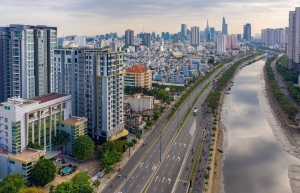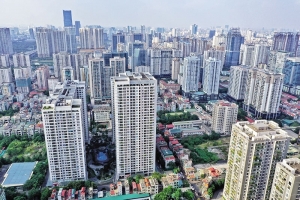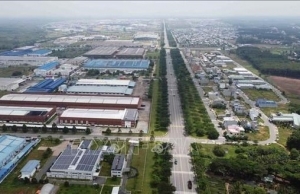Real estate legislation gets facelift for 2025
According to lawyer Le Van Hoi, director of My Way Law Firm, the new law to take effect from 2025 will resolve a number of previously outstanding problems in the real estate market.
 |
| Real estate legislation gets facelift for 2025, illustration photo/ Source: freepik.com |
“For example, current law does not specifically regulate deposits when buying, selling, or leasing real estate to be formed in the future. However, from 2025 real estate project investors will only be allowed to collect a deposit of no more than 5 per cent of the selling price, lease-purchase price of houses and construction works built in the future,” Hoi said.
The deposit agreement must clearly state the selling price, lease-purchase price of the house, the construction project, and the construction floor area of the project, added Hoi.
This regulation is intended to partly prevent investors from using other forms of security to mobilise capital before having enough conditions, such as deposits and priority loans, to purchase products formed in the future.
The regulation of putting 20 per cent of social housing into commercial housing of every project is not only mandatory, but the responsibility of each locality’s authorities, said Phan Le Thanh Long, CEO and founder of AFA Research & Education Group, an institute providing research and professional training in accounting, auditing and finance.
“Although we will need to wait for the laws to take effect, as well as the decrees and circulars guiding the implementation, the passage of these two laws is a push for the market towards sustainable and healthy development, instead of heating up the market with speculative activities,” Long said. “The main goal of this law, as well as the upcoming Housing Law, is that all individuals have homes and land resources that are exploited properly.”
Signs of recovery in the real estate market have begun to appear with more frequency since the third quarter of 2023. Supply improved and liquidity started to increase, and investors are aggressively launching their products to the market.
The government has made several moves this year to solve difficulties in the real estate market, and support from the sharp decline in bank interest rates combined with optimistic expectations of investors have caused the market to improve.
However, Vo Hong Thang, director of Consulting and Project Development at DKRA Group, said that the market has had a certain recovery in supply and consumption in recent times, but there has not been significant recovery overall yet.
“The law changes are a necessary condition, but more conditions must be created to help the market have a stronger recovery in the coming time,” Thang said. “Some solutions include simplifying procedures so that home buyers can easily access bank capital.”
Secondly, Thang said, business sentiment is less optimistic about market recovery into next year, so it is necessary to continue promoting stimulus support packages to help the market prosper.
“Thirdly, solutions to remove legal problems that have been issued by the government must be applied thoroughly and effectively, creating confidence and resilience for the market’s recovery,” he added.
 | Real estate rebound anticipated Real estate developers are scaling up efforts to bolster sales in a bid to offset the shortfall earlier in the year. |
 | Real estate bond issuance heats up Amidst the market headwinds, several real estate developers with healthy operational records have secured large sums for project deployment through bond issuances. |
 | Another push for real estate bounce Vietnam’s government aims to boost its real estate sector by easing bank credit and tackling legal, land, and administrative hurdles to foster market growth. |
 | Hospitality and real estate navigate uncertainty Hotel occupancy rates in Southeast Asia have trended upward since the reopening of all major markets. However, a competitive labour market, rising energy costs, geopolitical tensions, and expensive travel continue to impact hospitality demand. |
 | Industrial real estate spearheads sector restoration The industrial real estate segment in Vietnam is currently considered the best performing in the market, with strong business indicators, high land prices, and impressive occupancy rates. |
What the stars mean:
★ Poor ★ ★ Promising ★★★ Good ★★★★ Very good ★★★★★ Exceptional
Related Contents
Latest News
More News
- Construction firms poised for growth on public investment and capital market support (February 11, 2026 | 11:38)
- Mitsubishi acquires Thuan An 1 residential development from PDR (February 09, 2026 | 08:00)
- Frasers Property and GELEX Infrastructure propose new joint venture (February 07, 2026 | 15:00)
- Sun Group led consortium selected as investor for new urban area (February 06, 2026 | 15:20)
- Vietnam breaks into Top 10 countries and regions for LEED outside the US (February 05, 2026 | 17:56)
- Fairmont opens first Vietnam property in Hanoi (February 04, 2026 | 16:09)
- Real estate investment trusts pivotal for long-term success (February 02, 2026 | 11:09)
- Dong Nai experiences shifting expectations and new industrial cycle (January 28, 2026 | 09:00)
- An Phat 5 Industrial Park targets ESG-driven investors in Hai Phong (January 26, 2026 | 08:30)
- Decree opens incentives for green urban development (January 24, 2026 | 11:18)

 Tag:
Tag:





















 Mobile Version
Mobile Version